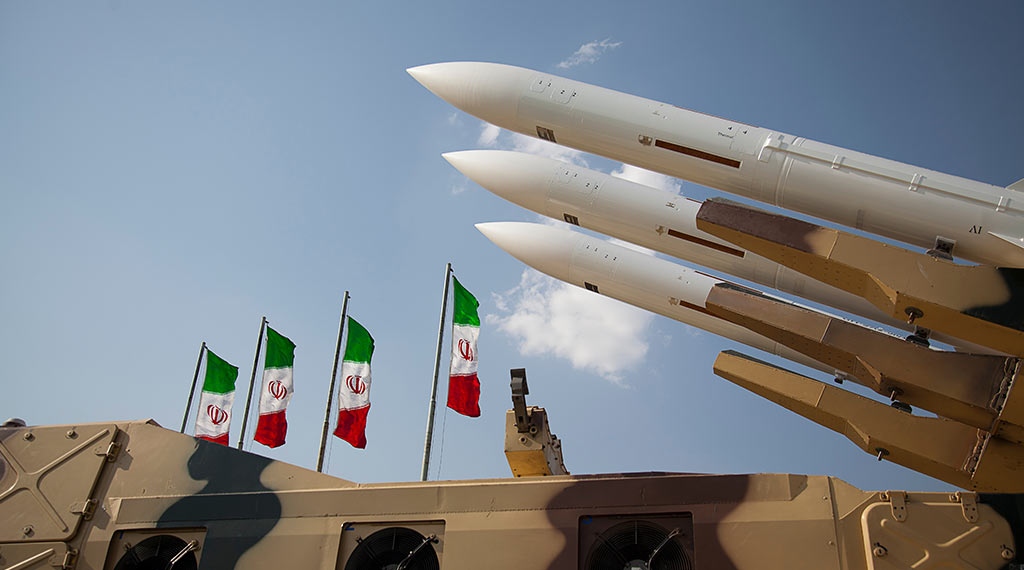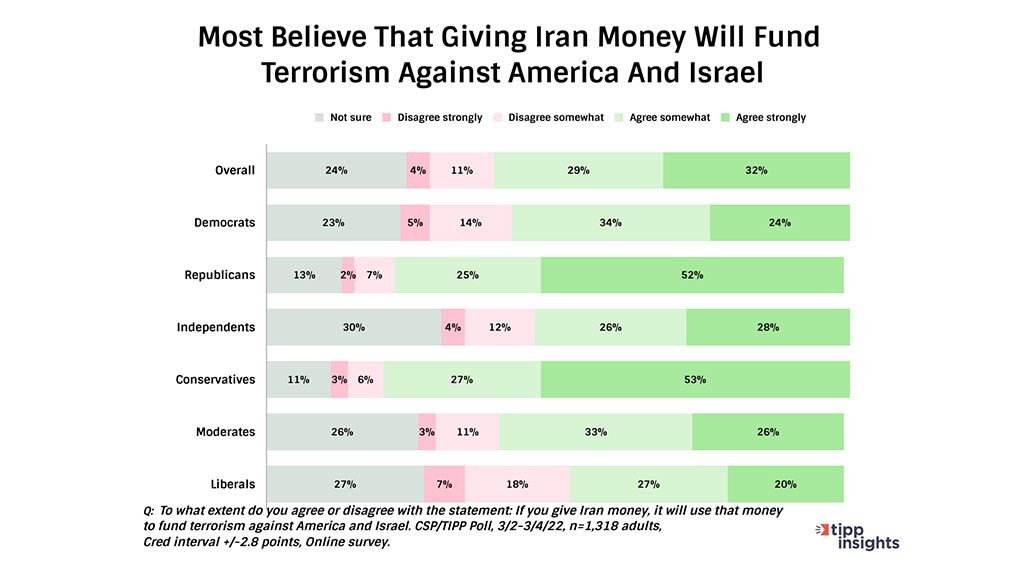Americans not confident the US can stop Iran from getting nuclear weapons

Editor’s note: The Center for Security Policy gratefully acknowledges its collaboration with tippinsights on the simultaneous and exclusive release of this important story.
As the final stages of the Vienna negotiations approach, the revival of the 2015 Joint Comprehensive Plan of Action (JCPOA) is almost certain. Americans are growing concerned with its potential implications. According to a new CSP/TIPP poll conducted in early March, nearly one in two respondents (47 percent) are not confident that the U.S. will be able to stop Iran from getting a nuclear weapon. Thirty-eight percent are confident.

Additionally, the poll results indicate that 39 percent of Americans consider the 2015 U.S.-Iran joint agreement a “bad deal,” while 28 percent consider it a “good deal.” One-third (33 percent) are not sure. Ideologically, 57 percent of conservatives, 26 percent of liberals, and 37 percent of moderates believe that the 2015 deal was a bad deal.

The survey also asked respondents if they agreed with the statement, “If you give Iran money, it will use that money to fund terrorism against America and Israel.” Overall, an overwhelming 61 percent of respondents agreed with this statement, including 47 percent self-identifying liberals. Iran’s funding and various contributions to terrorist activity across the region likely explain why respondents overwhelmingly agreed the regime would use the money gained from sanctions relief to perpetuate terrorism.

After the unilateral withdrawal of the U.S. from the deal, Tehran accelerated its pursuit of nuclear enrichment to levels that violate the original agreement. Since the onset of the Vienna talks, Iran has continuously increased its demands while simultaneously building up its uranium enrichment and fissile materials—key components in a nuclear program. More concerning, verified assessments indicate that Iran is just a few weeks away from acquiring enough highly-enriched uranium to build a nuclear weapon.
At the same time, the regime is demanding the Iranian Revolutionary Guard Corp. (IRGC) be removed from the U.S. Foreign Terrorist Organization (FTO) list. The IRGC serves to export the country’s foreign policy and is responsible for the regime’s proxy warfare and terrorist activity throughout the region, including the funding and training of the Houthi rebels in Yemen and Hamas militants in Gaza. In the last year, Iranian-backed militias have carried out dozens of rocket and drone attacks targeting American troops and personnel on the ground in Iraq.
The Biden White House has made re-entering the joint nuclear agreement with the Islamic State of Iran a top foreign policy priority for the administration. President Bidenrefers to former President Trump’s decision to withdraw from the JPOCA in 2018 as a “bad decision” that Americans are “continuing to suffer from.”
On paper, the nuclear agreement grants Tehran international sanctions relief in exchange for some curtailments to its nuclear program. The Trump administration cited the deal’s temporary structure that would permit the regime to build its nuclear program in a matter of years, and the lack of access international inspectors had to verify Iran’s compliance with the agreement, among other reasons, to pull out from the deal in 2018.
More recently, Russia has begun to leverage Iran for relief from the sanctions imposed by the West in the aftermath of its Ukraine invasion. Despite Moscow’s war on Ukraine that has caused hundreds of civilian deaths and destruction, the country was permitted to remain in the Vienna talks because the nuclear deal is a “top national security issue” for the White House, according to the U.S. Secretary of State spokesperson Ned Price.
Iran’s escalating demands coupled with Russia’s continued involvement in the talks could explain why more Americans, including liberals, are against the deal in its current state. If the Biden administration revives the 2015 deal without strengthening it, Americans will remain concerned.
- The secret reason the age of the aircraft carrier is over - April 22, 2024
- Iran’s ballistic missiles: How much of a threat are they to Israel? - April 18, 2024
- China’s growing submarine fleet: A threat to the US Navy? - April 15, 2024
